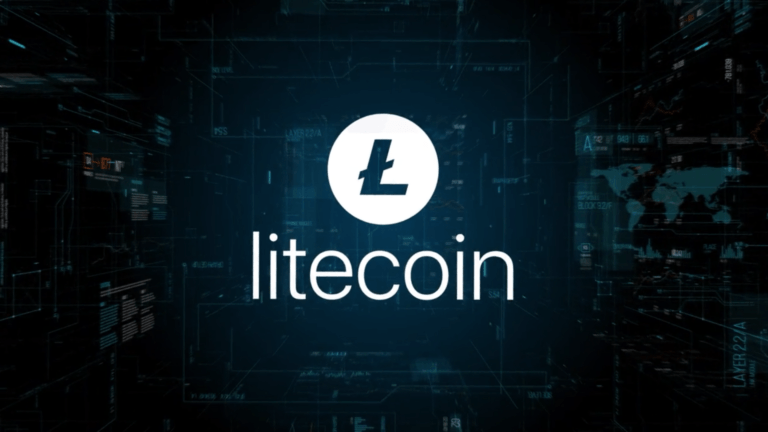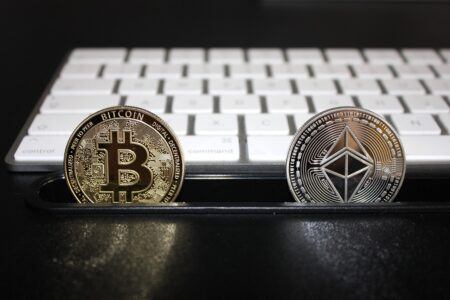Litecoin is one of the most decentralised cryptocurrencies on the market. Creator Charlie Lee and his fellows from the Litecoin Foundation are the only authoritative figures around, but their status reflects an ethos of soft power governance: they choose to exert their power lightly (no pun intended) and without relying on attempts to centralise decision making. In this open-source environment, you either trust the vision of developers and embrace the change or choose to go your own way.
These details are very relevant in order to characterise the so-called Litecoin family, as the community itself is a consequence of this kind of laissez-faire attitude. And while it’s true that Bitcoin also relies on the work of dedicated volunteers, there is still something special and peculiar about Litecoin’s minimal governance.
Charlie Lee vs Satoshi Nakamoto
First of all, let’s talk about the influence of the leader. In the case of Bitcoin, Satoshi Nakamoto is the prometheic figure who gave fire to mere mortals and left little instructions that are open to interpretation. The bitcoin whitepaper is now treated as a bible by some.
Whereas, Litecoin’s Charlie Lee is alive and kicking, tweeting about the latest technical breakthroughs and partnerships, participating in podcasts, and preaching a fraternal partnership between Bitcoin and Litecoin. There is no room for misinterpretation of the founder’s words and there is potential to create more centralisation through Charlie Lee for the sake of efficiency. However, the use of authority is kept at a bare minimum.
The Soft Power of Charlie Lee and the Litecoin Foundation
The only official institution which has any kind of power or authority over the coin’s management is the Litecoin Foundation, which was established for both legal and practical reasons. It oversees the state of the coin, manages the team of developers, occasionally hires professionals for various tasks, but mostly relies on the help of good-willing volunteers. No other company or entity reflects the Litecoin vision and gets acknowledged as such, so any recommendation or endorsement for a third party is only contextual and temporary.
When a major network update is being promoted (such as SegWit or the Lightning Network), the process of establishing consensus involves multi-party negotiations which seem to always find a healthy middle ground to satisfy everyone’s best interests.
This is way more authoritative than the Bitcoin governance as the community is smaller and easier to manage, and consequently this makes it more efficient. When the parties and stakeholders are known and they show honesty and transparency, it’s so much easier to find consensus for the sake of moving on towards progress. This can be classified as a democratic feature which, to a great extent, waters down the other authoritarian features of Charlie Lee’s leadership.
But that’s not the most democratic feature. Litecoin tries to have an entirely decentralised community that is founded on good will, trust, and friendly relations. Anyone can write to the Litecoin Foundation and offer to contribute to the cause, and if you present an interesting skillset you will be assigned certain tasks within the community (that’s how I became the guy who writes their monthly newsletter article, but in the meantime also became a tester for their iOS LoafWallet app). Anyone can make a contribution and help the product grow towards the “coin for payments” vision.
The Pros and Cons of the Litecoin Community
Some may say that the Litecoin Family (#LitecoinFam) resembles a strange cult, others might draw comparisons across Linux distributions and the eccentric enthusiasts who surround them, but the situation is slightly different. First of all, almost nobody outside the core developing team gets paid for their work. The reigning open-source ethos is complimented by a shareholder mentality (if I help this project grow, then I will also maximise my investments), and the general assumption regarding the community is that every participant is well-meaning and good-natured.
Secondly, it should be noted that this kind of open approach doesn’t always lead to utopian results. The biggest third-party failure of the Litecoin project, LitePay, was supported, endorsed, and partially-financed by the Litecoin Foundation, but proved to be a failure just a month after the official release. The project, which was developed and envisioned by an enthusiastic community member, didn’t live up to the promises and expectations, proved to be opaque in terms of management, and ultimately ended up becoming another unsuccessful attempt to penetrate the mainstream financial system.
Another such failure could be seen more recently with LitePal, a project which wasn’t officially endorsed by the Litecoin Foundation but received lots of attention from the community. It pretty much promised to pick up from where LitePay left off and offer a community-developed payment processor. However, it was likewise short-lived: the launch had been postponed without notice, the website (which was accused of plagiarism anyway) had been taken down, and the information made available about the project had always been elusive at best.
But in spite of all these issues, there is a growing community of Litecoin supporters who tweet under the #LitecoinFam hashtag and work as bona fide ambassadors and marketers of the coin. Failures are just lessons for self-improvement among true believers, and the Litecoin project must move on in order to find mainstream adoption and become the coin for payments.
Organic Public Relations
Unlike many other cryptocurrencies, Litecoin doesn’t have a proper PR department, hasn’t hired any marketing companies, and relies solely on the community, its friendly relations with Bitcoin, and the industry prestige of Charlie Lee. Participation to every action is purely voluntary and the fact that marketers or PR specialists bring their contributions is a matter of personal choice.
The philosophy behind this method is simple and resembles a Kantian approach to human nature: the community contributes because its members care about the product, believe in the decentralised model that Litecoin and Bitcoin put forward, and will eventually reap what they’ve sown. There is no direct financial incentive involved, but your work helps you protect your investments. And if you’re the kind of person who cares about legacy and leaving something behind, then you can feel happy with the thought that you’re working on a financial revolution.
Litecoin’s Utopia
It’s all like a Platonic utopia where the common goal contextually replaces selfish individual desires, and the cause seems to be beneficial enough to coordinate a vast group of interested parties. Maybe it would be foolish to believe that everyone is on board for the revolution or for the technology, but at the end of the day everybody gets what they seek or else they voluntarily leave to pursue other goals.
Spreading the word to increase Litecoin adoption will help raise the price, talking to businesses to accept payments will increase the adoption rate, and offering your professional skills to the organisation will benefit the project at large. It works just because altruism and self-interest can merge into a greater state of well-being that’s mutually-beneficial.
Allegedly, other cryptocurrencies like DASH or Ethereum spend millions of dollars on marketing and advertisement, but so far Litecoin seems to do fine with an ever-expanding team of volunteers. Could this be a sustainable and trustworthy model? Well, we can only observe the phenomena on the long term and see how the situation evolves. With this limited amount of arbitrary authoritative intervention, it will either become a brilliant hybrid governance model or turn into a disastrous greed-fuelled implosion. Either way, it’s a great study case and observers from the world of technology and computer science definitely have a lot to learn. Even I, as a political scientist, feel fascinating by the way the engine is fueled and driven, and it’s always a pleasure to discover that CEOs of big companies voluntarily support Litecoin without asking for a dime. It’s an egalitarian space where your outside status doesn’t really matter – it’s all about what you can do for the coin and how you can use your sum of experiences for its growth.
At the end of the day, it all comes down to the community and its nature. The individual members are the ones who run nodes, spread the word about adoption for payments, and shape the governance of Charlie Lee’s invention. #LitecoinFam








